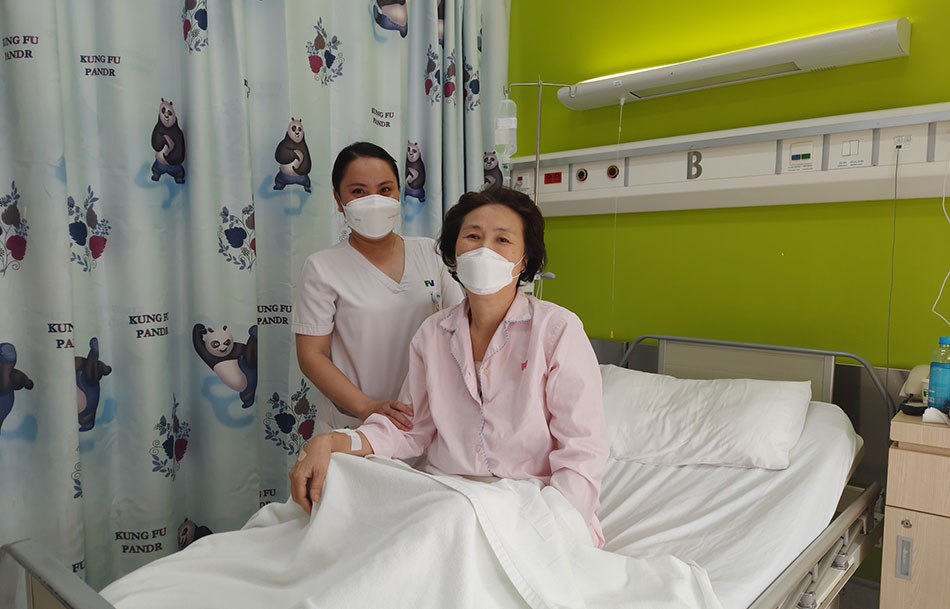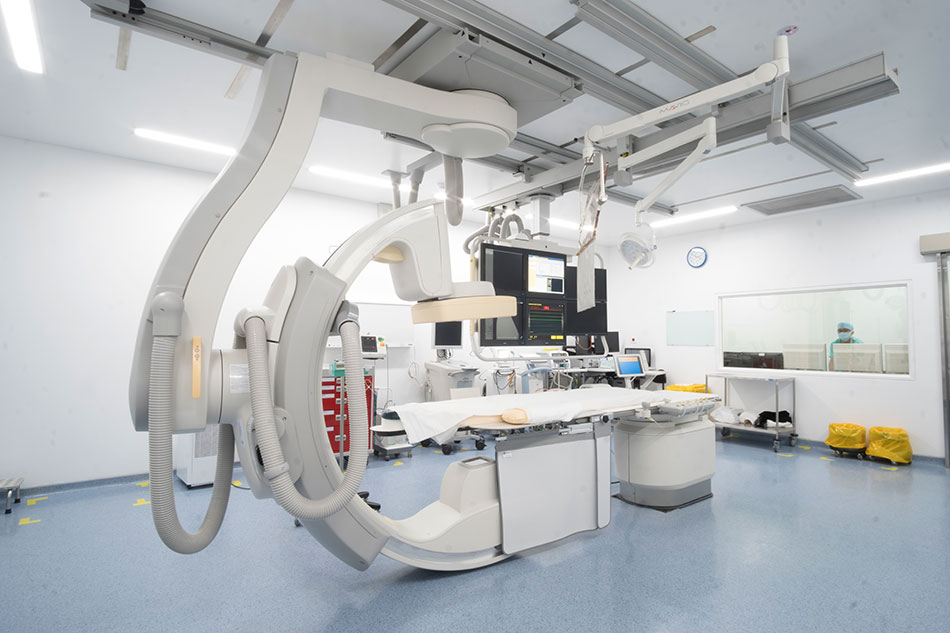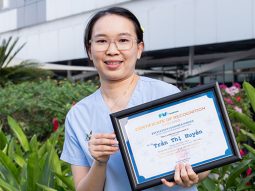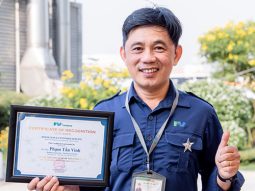While going to the supermarket alone, Mrs KDY (63 years old, Korean national) felt tired, weak, she could not control one arm and leg and then she fainted. She was taken to a nearby clinic; the doctors there examined and determined that she had stroke, so they immediately transferred her to a larger hospital for appropriate and timely treatment.
A stroke comes even when you’re feeling in normal health
When taken to FV Hospital, Mrs KDY was in a state of complete paralysis. The initial examination showed that she had a cerebral vascular occlusion, leading to a stroke. The doctors at the Emergency Department gave the patient thrombolytic medicine, to dissolve blood clots and open up congested blood vessels in the brain. At the same time, the case was referred to our team of doctors including the interventional neurologist, anaesthesiologist, and the team from the Interventional Catheterisation Laboratory (Cathlab) so they could be ready to treat the case.
After taking thrombolytic medicine, the patient’s arm and leg muscles recovered slightly. Most medicine can solve the case of small blood vessel blockage, however, in Mrs KDY’s case, a blood clot has blocked one of the large arteries of the brain. Therefore, the doctors decided to transfer the patient to the Cathlab for cerebrovascular intervention. After the neurological intervention, the patient’s muscle strength had obvious signs of recovery and was fully recovered after 24 hours.
After 3 days of hospitalisation combined with early physical therapy, Mrs KDY’s health returned to a stable state. She was able to function under the guidance of physiotherapists, and she said very clearly: “I have never had symptoms of stroke until now, my health state is also normal.” Mrs KDY added that in previous years she had regular health check-ups and had good results. This year, due to the COVID-19, she did not visit the hospital for her regular check-up. Although she was confident about her own health, the stroke happened to her; fortunately, she was taken to the hospital in time and now she is out of danger.

After 3 days of hospitalisation combined with early physical therapy, Mrs KDY’s health returned to a stable state
Emergency care – the golden hour for stroke patients to have a chance to recover
Being the doctor who directly performed the neurovascular intervention procedure for Mrs KDY, Dr Specialist Level I. Nguyen Minh Duc (Neurosurgery & Spine Surgery Department-FV Hospital) said that Mrs KDY’s case was a stroke caused by a blood clot that blocked the middle cerebral artery (MCA), causing blood to not flow to supply oxygen to the brain. The longer occurs, the more the brain is damaged and it affects the functional ability of the patient. In order to successfully treat a stroke, the patient must to be taken to the hospital in time, and the hospital must have a quick response. “The identification, initial treatment, and quick intervention by the emergency doctors at FV contributed to the success of this cerebrovascular intervention,” emphasised Dr Minh Duc. Depending on the case, the doctor may decide medical intervention (with medication) or surgery at the Cathlab. “However, the patient needs to be taken to the hospital within about 4 hours, which will help increase the success rate of treatment, as well as minimise any future complications,” added Dr Minh Duc.
Postoperative follow-up for stroke cases depends on the extent of brain damage. This largely depends on whether the stroke patient is brought to the hospital within the golden time (about 4.5 hours from the first signs of the stroke). In the case of Mrs KDY; she was brought to the hospital early, and thanks to the accurate assessment and intervention of the doctors and our quick stroke emergency procedure, she was saved and avoided long-term damage.

Doctor SLI. Nguyen Minh Duc (Neurosurgery & Spine Surgery Department-FV Hospital) – Doctor who directly performed endovascular interventions for patients with K.D.Y.
Currently, with support from the Cathlab department at FV, the neurovascular intervention procedure is performed quickly and with little invasiveness. With this technique, the doctor will thread a small catheter from the femoral artery to the cerebral blood vessel to access and treat the thrombus causing blockage of the cerebral blood vessel. Modern equipment at Cathlab helps doctors pinpoint the exact location of blood clots, shortening the procedure time, increasing safety, the survival rate, and limiting complications such as paralysis and language, cognitive loss, or loss of life caused by a stroke. In about 2 hours, the neuroendocrine intervention team successfully handled the patient’s blood vessel blockage. However, this is a technique that requires modern equipment and the high professional skills of doctors, so only a few large hospitals in Vietnam can perform it.
Every year in the world, more than 17 million people have a stroke, 30% of them die and only 10% are successfully treated with no lasting sequelae. The main cause of ischemic stroke comes from atherosclerosis and heart diseases, as in the case of Mrs K, it was arrhythmia. Therefore, stroke screening is necessary for patients with a history of cardiovascular disease, unhealthy lifestyles such as smoking a lot, drinking a lot of alcohol, people who are sedentary, people who have had previous heart attacks, or transient stroke (ischemic stroke),…

State-of-the-art equipment at Cathlab FV supports doctors to perform neurovascular intervention quickly and with little invasiveness.
From the end of 2020, FV Hospital has officially reached an agreement with Ho Chi Minh City Social Insurance to pay for patients with state health insurance who come for examination and treatment at a number of high-tech specialties of FV hospital such as cardiovascular intervention, neurovascular intervention, cancer treatment, artificial joint replacement, Phaco surgery…
Patients using health insurance at FV will still enjoy similar health care services as other patients, regardless of the subject with or without insurance. At the same time, patients can apply parallel types of health insurance including state health insurance, private health insurance, or international health insurance.
For more information, please contact Finance Information and Insurance Services Department, FV Hospital: (028) 5411 3333

 Vi
Vi 












